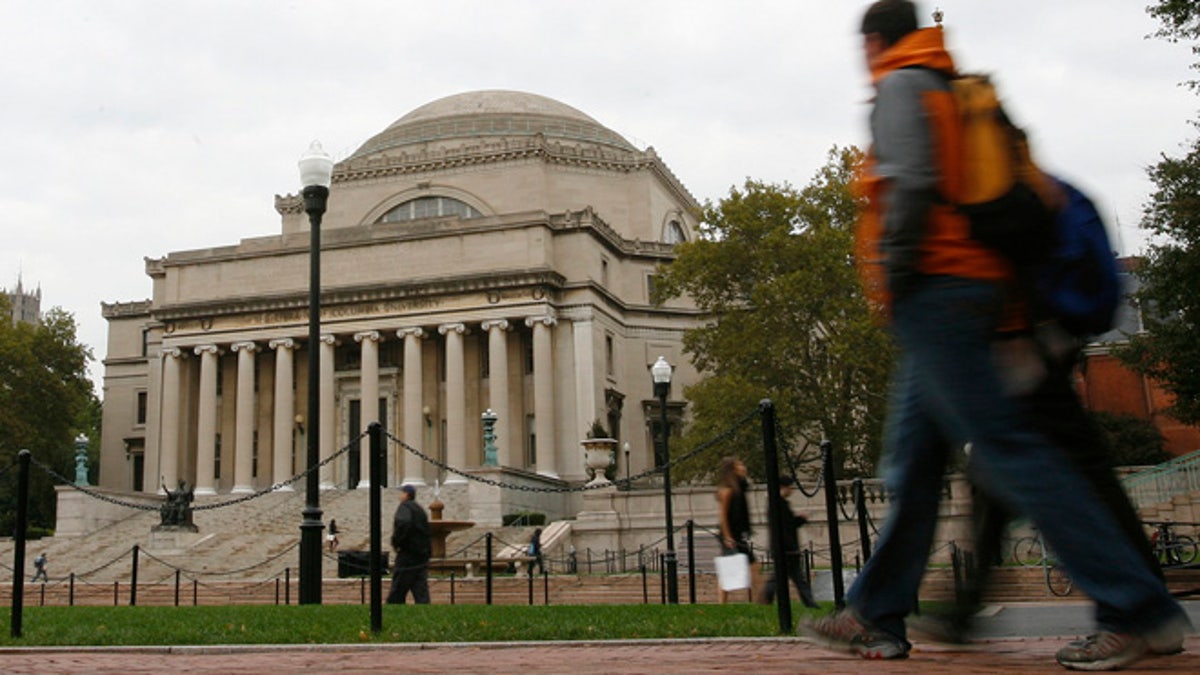
FILE: A group of students at Columbia Law School who’ve had their faith in the “integrity of the grand jury system” after high-profile grand jury decisions are allowed to postpone their final exams so their performance would not suffer. (Reuters)
I thought it was a joke. And a funny one, at that.
But as I read the story I began to realize it was true. Columbia Law School is letting students postpone their final exams if they feel traumatized by the recent non-indictments in the Michael Brown and Eric Garner cases.
Still, I didn’t believe it until I saw for myself the message from interim Dean Robert Scott: “…students who feel that their performances on examinations will be sufficiently impaired due to the effects of these recent events may petition… to have an exam rescheduled.”
[pullquote]
In other words, all a student has to say is, “I feel really, really sad these grand jury cases didn’t turn out the way I wanted.” Or something simple like, “My feelings have been hurt.”
Hold on…let me grab a tissue. I’m gettin’ all weepy.
And it’s not just Columbia Law. Students at Harvard and Georgetown are reportedly pressing for the same privilege. They seem to think disappointment is a disability. Next, they’ll be applying for long-term benefits.
Law school must have changed dramatically since I attended more than 3 decades ago. Back then professors not only taught you the law, they taught you about real life.
You won’t win all your cases. People in court lie under oath. The legal system doesn’t always work. Judges might treat you unfairly. Juries tend to ignore the law. The truth may betray you. Get used to it and grow a backbone. If you don’t, you will fail your clients and yourself.
Law school used to be a training ground, not a playground. If you couldn’t cut the intensity and adversity, they let you know it in a way reminiscent of Professor Charles Kingsfield in the book and film, "The Paper Chase": “Mr. Hart, here is a dime. Take it, call your mother, and tell her there is serious doubt about you ever becoming a lawyer.”
But today, Columbia’s equivalent of Kingsfield might say, “Mr. Hart, would you like some Pablum with your tofu? What can I do to spoon feed you the law? C’mon now, give me a happy face!” Columbia is even offering counseling sessions to help students deal with their trauma and grief over the Brown and Garner decisions.
If professors in ivory towers choose to coddle their students, the result will be fainthearted lawyers with “skulls full of mush,” as Kingsfield said.
If you’re treated like a china doll in law school, you’ll surely shatter in the rough and tumble world of real law. Once you pass the bar exam and are out on the street, it takes hard work, tenacity and resilience to succeed. You can’t start bawling and take a “time out” every time you don’t get your way.
Does Columbia Law know any of this? Dean Scott apparently doesn’t. He seems to have been an academic all his life. His resume suggests a guy who’s never set foot inside a courtroom. So that may be part of the problem.
The other part is the conspicuous bias of schools like Columbia. Dean Scott’s message to students said the non-indictments “have shaken the faith of some in the integrity of the grand jury system” and undermined a sense of fairness, due process and equality. But he necessarily assumes the grand juries got it wrong. Maybe they did. Perhaps not.
Instead, why not seize the opportunity to teach students that this is how our system of justice works –or doesn’t work? It’s not perfect.
Laws and legal structures are as fallible as the men and women who create and administer them. If you don’t like the system, go out and change it.
Make it better. But don’t go back to your dorm room all traumatized and sulking, while whining that you can’t take your final exams because you’re bereaved. Remember, you have a spine.
I shudder to think what Columbia Law graduates will do the first time they lose a case. Will they go crying to the judge, begging for a “do over”? Good luck with that one.
If they crash and burn in the real world because professors pandered and indulged them in a fake one, they should seriously think about suing for a refund.
Otherwise, it’s time to grow up.
